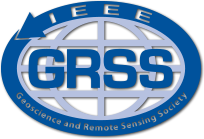Plenary Speakers
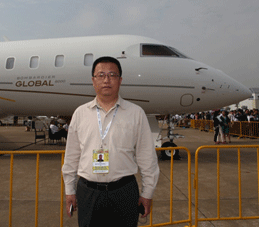
Tong Xudong
Director of Earth Observation System and Data Center, China National Space Administration & Chief Design Officer of China’s High-Resolution Earth Observation System
“Plans to implement the National Space Infrastructure Construction of China”
Prof. Tong Xudong is director of Earth Observation System and Data Center, CNSA, who also serves as chief design officer of the China’s High-resolution Earth Observation System. Prof. Tong grew up in Anhui province, and then studied spacecraft technology in Nanjing University of Aeronautics and Astronautics, Beijing Institute of Space Mechanics and Electricity, and Samara State Aerospace University, Russia. From 1988 to 2003, Prof. Tong worked on spacecraft design, responsible for the returning and landing subsystem of the manned space program. After five years acting as executive director and vice president of APT Satellite Holdings Limited, he returned to China Aerospace Science and Technology Corporation, and served as the director of the China Crewed Space Engineering Office. He joined in CNSA in 2014.
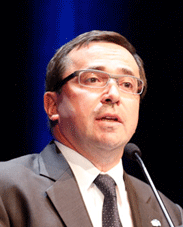
Yves-Louis DESNOS
Head of the R&D Section in the Earth Observation Directorate of ESA at ESRIN
"The ESA and MOST-NRSCC Dragon cooperation, 12 years of advances in understanding our Living Planet"
Mr Yves-Louis DESNOS is head of the R&D Section in the Earth Observation Directorate of ESA at ESRIN in Frascati, Italy. Since 2006, he is ESA Senior Advisor on SAR technologies and applications. He is responsible for the Dragon cooperation with China commenced in 2004. He started his career at Thomson-CSF as a RADAR system engineer (1984), joined ESA-ESTEC as a RADAR engineer (1989) and was appointed ASAR principal engineer in the ENVISAT project (1996). He was chairman of CEOS WGCV SAR subgroup (1996-2000) and chairman of CEOS WGCV (2000-2003). He was general co-chair for IGARSS 2012 in Munich, Germany. In 2014, he received the People’s Republic of China Friendship Award for the Dragon cooperation.
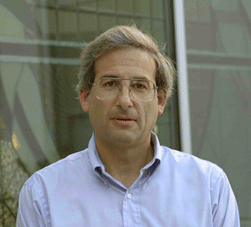
Michael H. Freilich
Director of NASA’s Earth Science Division
“From Science to Societal Benefits: NASA’s Earth Observation and Research Programs”
Michael H. Freilich is responsible for all of NASA’s Earth observing flight missions, Earth-focused research and analysis, applied sciences, and Earth-focused technology development activities. Prior to joining NASA in November 2006, he was a Professor and Associate Dean in the College of Oceanic and Atmospheric Sciences at Oregon State University, and from 1983 to 1991 he was a Member of the Technical Staff at the Jet Propulsion Laboratory. Freilich received his Ph.D. in Oceanography from Scripps Institution of Oceanography in 1982.
Dr. Freilich served as Project Scientist and Mission Principal Investigator for NASA’s NSCAT, QuikSCAT, and SeaWinds/ADEOS-2 scatterometer satellite missions in the 1990s and 2000s. He led the NASA Ocean Vector Winds Science Team from 1984 through 2005, and was a member of the QuikSCAT, SeaWinds, and Aqua/AMSR Validation Teams, as well as the NASDA (now JAXA) ADEOS-2 Science Team. He has served on many NASA program and project review boards, as well as on the U.S. National Research Council’s (NRC) Ocean Studies Board, Space Studies Board, and from 2001 to 2005 as Chair of the NRC Committee on Earth Studies.
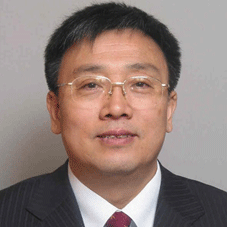
Zhang Wenjian
Director of the Observing and Information Systems Department and Director of WMO Space Programme of the World Meteorological Organization (WMO)
“The WMO view on global change in particular with space observation data”
He is responsible for the global coordination and implementation of WMO Integrated Global Observing System (WIGOS) including both space and surface components, WMO Information System (WIS), Global Climate Observing System (GCOS).
Prior to this position, he served as the Deputy Administrator of China Meteorological Administration (CMA) from 2006-2008; Director-General of Observing and Information Systems Department of CMA (2004-2006); Director-General (1998-2004) of National Satellite Meteorological Center of China (CMA). During his working tenure in CMA, Dr. Zhang has led the efforts to shape up the development of the 10-year (2000-2010) Plan for Chinese Meteorological Satellite Programme and oversee the implementation activities, including successful development and operations of FY-2 (geostationary) and FY-3 (polar-orbiting) satellites, under the overall supervision of China Meteorological Administration, and support from Chinese Government.
He majored in satellite meteorology since 1986, and obtained his degree on Mater of Science (master degree) from Chinese Academy of Meteorological Sciences in 1989, and a doctorate degree from Peking University in 1993.

